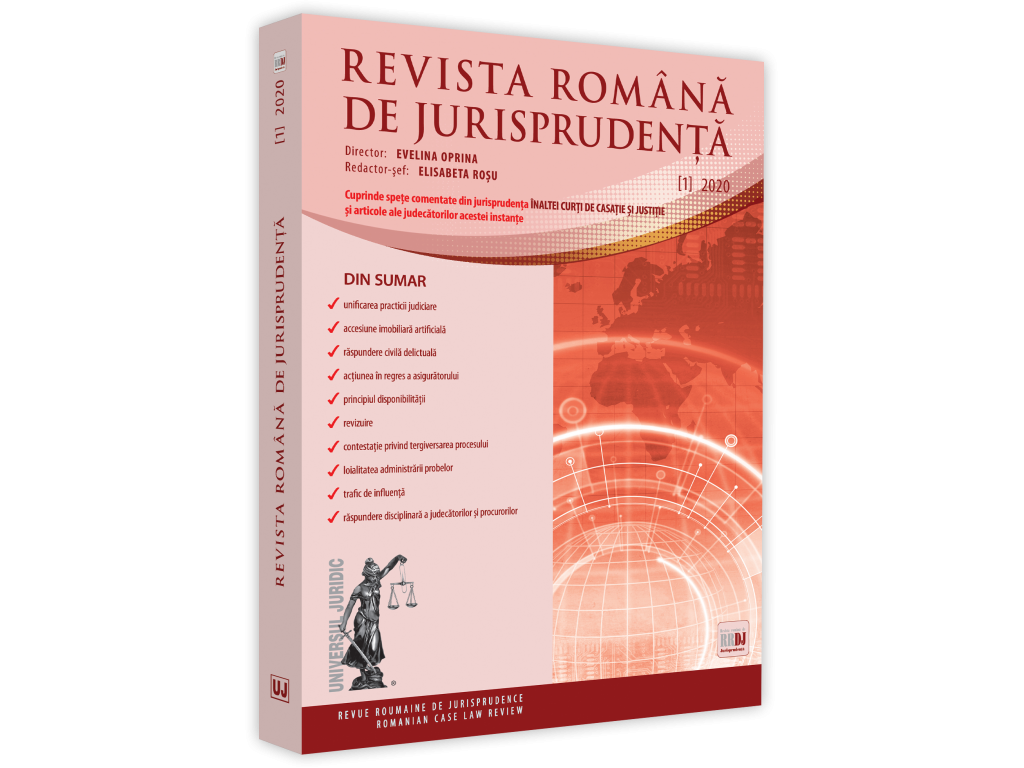Prejudice to the right to honour and reputation. Exceeding the limits of freedom of expression in the relationships among private individuals.
DREPT CIVIL ŞI DREPT PROCESUAL CIVIL
Abstract
According to Article 219 para. 1 of the Civil Code, the legal entity shall be liable for its own deed, for the damages caused by the illegal deeds committed by its bodies, when they are related to the duties or purpose of the assigned titles, however, this shall not exclude the own liability of these individuals, according to para. 2 of the same article. In such an assumption, there are simultaneously two legal liability relationships: between the legal entity and the prejudiced third party, according to Article 219 para. 1 of the Civil Code and, on the other hand, between the individual who committed the harmful deed as management body of the legal entity and the prejudiced third party. The victim may sue, either the person in question or both persons to be jointly liable, in compliance with Article 1382 of the Civil Code. Consequently, the legal entity shall be liable for the illegal deed of its manager, but also the manager of the institution is presumed to be jointly liable with the legal entity, when he causes a damage to the third party by its own deed. Therefore, since the defendants have not indicated another person guilty of the publication of the statement with injurious content for the claimant on the official website of the institution, it operates the assumption that they are the authors of the illegal deed in their capacity as issuer of the statement, respectively manager being a decision-maker in the defendant institution, and there is no legal basis for removing from application the principle of solidarity of tort liability.








